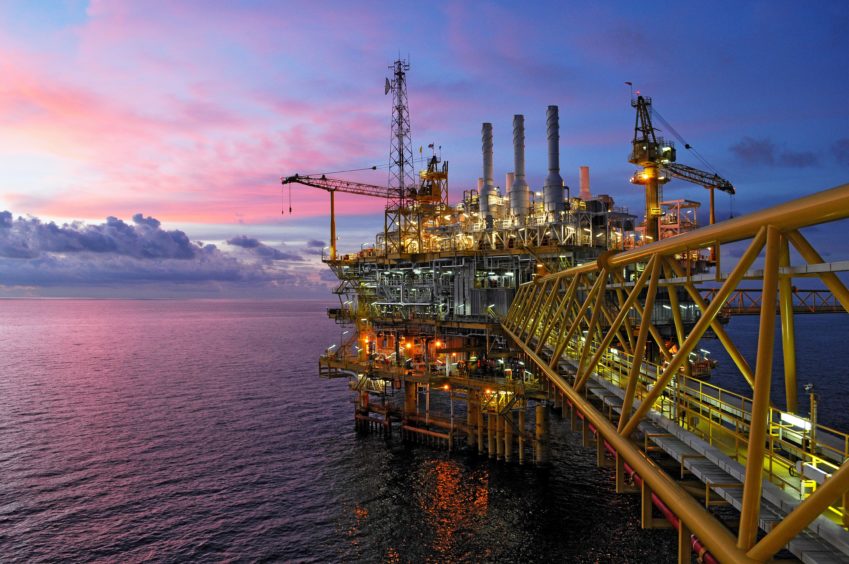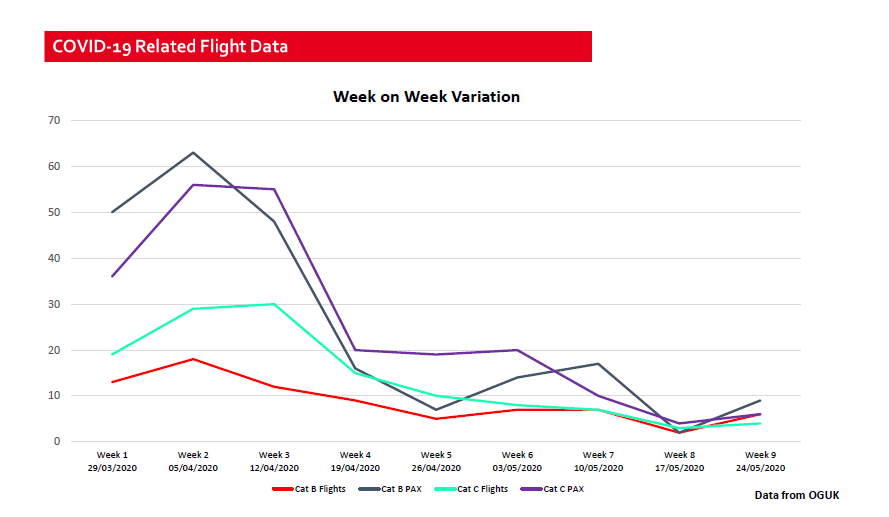
As the lockdown measures are eased, the number of workers offshore will steadily increase. Many will be faced with a “new reality” which will, in time, become the “new normal”.
As members of the workforce travel to the heliports, their modes of transport from home to check-in will inevitably be more challenging given the impact social distancing and lockdown has had on airline, train and coach timetables. The need to arrive for check-in well in advance to allow for testing requires departing from home earlier than usual.
The helicopter flight
In most, if not all, of our business activities, measuring performance is part of our routine practice. It is fundamental to understanding where we need to improve, and the effect of measures introduced. Since the early onset of Covid-19, OGUK’s incident management team has been gathering information on flights which have been returning suspected Covid-19 cases to the mainland. Over nine weeks, we have seen a remarkable improvement in the statistics.
The graph below, which has been compiled using data from OGUK, illustrates how effective these measures have been at reducing the need for these return flights and the number of workers suspected of contracting the virus.

At the work site
On arrival at the offshore work site, you can expect to see changes to the way you’re treated on arrival, how you spend your recreational time, plan work, execute work and take meal breaks.
Change for some may result in heightened anxiety as, after having been at home for almost three months, the return to what should be a familiar place of work may not be all it seems. Be prepared to reset your expectations as you adjust to a workplace where new measures and processes have been introduced to protect against the potential spread of Covid-19.
To provide an overview of what changes the returning workforce can expect, Step Change in Safety is producing a series of new information videos through its workforce engagement workgroup. It has interviewed workers who have continued to work in the field and asked them what their returning colleagues should expect.
We have learned that work planning activities involve fewer people and may require additional visits to the worksite. Workers can expect planning and control of work activities to take longer and must be prepared to accept that this is for everyone’s benefit. For those who are accustomed to working in teams, in close proximity to one another, there may be a need to wear face masks to further reduce the potential for transmission of the virus.
This introduces additional challenges in noisy environments, where communicating safety critical information is vital. So it is of paramount importance that pre-activity planning is thorough and in-depth. Where there is a change to planned activity, workers must be prepared to practice “STOP work authority” to ensure the team is made aware and understands the impact of the change. There can be impact on even the most simple, routine work tasks when communication is influenced.
The workforce should also expect changes to the galley arrangements which have been adjusted to reduce the number dining at any one time, the use of shared serving utensils, open serving counters and shared condiment containers. The use of disposable cups, utensils and handwash stations has also significantly increased.
Despite these changes, the feedback from workers during a recent virtual Boots On For Safety session was that the workforce recognises the need for change and has positively embraced the new measures which have been introduced to improve their safety.
While travel arrangements, work planning, work execution, living and dining arrangements can be physically adjusted to accommodate the “new normal”, how we assess workers’ mental health, wellbeing and fatigue can be far more challenging.
As Step Change in Safety executive director Steve Rae notes: “We must develop a habitual concern for the welfare and wellbeing of the workforce and for everyone to take the time to provide support to one another as we move towards the “new normal”.
Recommended for you

